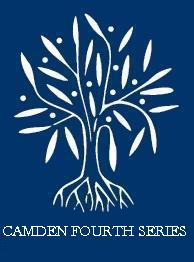No CrossRef data available.
Article contents
The Charge to the Grand Jury of the City of Bristol and County of the same City, At the General Quarter-Session of the Peace, held in the Guild-Hall there, April 30, 1728
Published online by Cambridge University Press: 21 December 2009
Extract
To the Gentlemen of the Grand Jury of the City of Bristol and County of the same City.
GENTLEMEN,
Could I with any Decency have excused my self from printing the following Speech after your Commands to publish it, the same, being no more intended for the Press than it is fit for it, had never thus appear'd abroad. The only Recommendation of this Charge to your least Notice, were those slight Touches in it relating to our happy Establishment: And your View in having it thus come into the World, I look upon as kindly giving me a proper Opportunity to clear my self from the Aspersion mention'd in your Presentment, which I hope the following Pages will effectually do. I am,
Gentlemen,
Your Most Obedient and
Most Humble Servant,
William Cann.
- Type
- Research Article
- Information
- Copyright
- Copyright © Royal Historical Society 1992
References
page 224 note 1 Tim. 1: 9.
page 224 note 2 This is an evident allusion to the methods used by Louis XIV to convert French Protestants back to Roman Catholicism, when his Dragoons were quartered in Protestants' houses, after the Revocation of the Edict de Nantes, 1685. The comparison between the two kingdoms is a permanent feature of these texts, and of the century in general. But conversely, not a word is said of English subjects who were Roman Catholics.
page 226 note 1 An allusion to the number of self-appointed itinerant preachers, who had left shoemending to become preachers or mountebanks. See Swift, J., A Tale of a Tub, 1710, 5th ed., Section 1Google Scholar; Graves, R., The Spiritual QuixoteGoogle Scholar, where Jeremiah Tugwell, a cobbler, is going to accompany young Wildgoose in his preaching and this, as late as 1773. See I, vi.
page 226 note 2 I have not been able to trace the origin of this fact.
page 227 note 1 An allusion to Ps. 133: 2.




